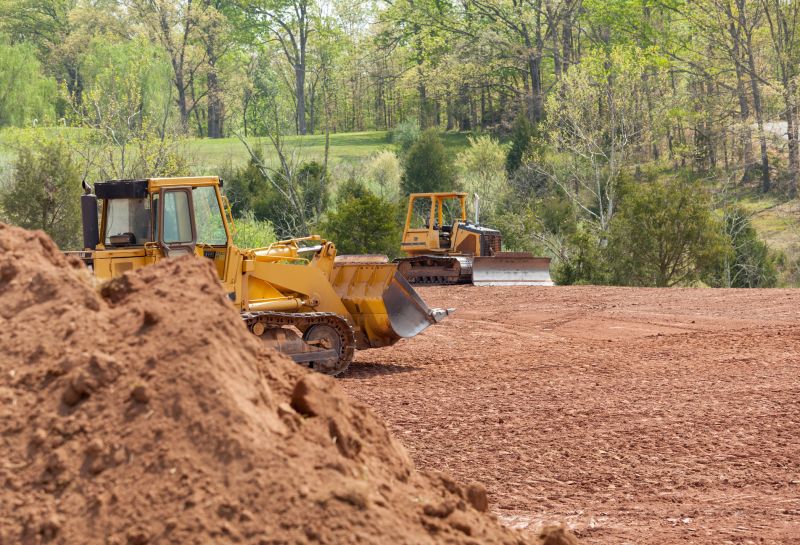Dallas - Land Clearing
Get help with your land clearing needs. Fill out the form above and we will connect you with local pros in your area. Land clearing is a crucial process that offers numerous benefits for property owners and developers alike. By removing trees, shrubs, and other vegetation, land clearing creates a clean slate for construction or development projects. It allows for efficient planning and utilization of the land, ensuring optimal use of space. Additionally, land clearing enhances safety by eliminating potential hazards like dead trees or overgrown vegetation that may pose a risk to structures or people. Moreover, it promotes environmental sustainability by enabling the implementation of erosion control measures and the preservation of valuable natural resources. Land clearing also facilitates improved access to the property and enhances visibility, making it easier to navigate and develop the land. Overall, land clearing plays a vital role in preparing the land for various purposes, ensuring a smoother and more efficient development process.
Land clearing is the process of removing vegetation, trees, and other obstacles from a piece of land to prepare it for various purposes such as construction, agriculture, or landscaping. It involves the use of heavy machinery and equipment to clear the land efficiently and effectively. Land clearing is essential to create a clean and level surface, allowing for easier development and utilization of the land. Whether you need to clear a small residential lot or a large commercial area, professional land clearing services can help you achieve your desired results. With their expertise and specialized equipment, they can efficiently clear the land, removing unwanted vegetation and debris, and creating a blank canvas for your specific needs.
Q: What Are The Environmental Impacts Of Land Clearing?
Answer: The environmental impacts of land clearing include deforestation, habitat destruction, soil erosion, loss of biodiversity, and increased greenhouse gas emissions.
Q: What Are The Different Methods Of Land Clearing And Their Pros And Cons?
Answer: The different methods of land clearing include manual clearing, mechanical clearing, chemical clearing, and controlled burning.
Pros and cons of each method are as follows:
1. Manual Clearing:
Pros:
- Environmentally friendly as it minimizes damage to surrounding vegetation and ecosystems.
- Allows for selective clearing of specific areas.
- Can be cost-effective for small-scale projects.
Cons:
- Labor-intensive and time-consuming.
- Not suitable for large-scale clearing projects.
- May require permits and compliance with regulations.
2. Mechanical Clearing:
Pros:
- Efficient and fast for large-scale projects.
- Can clear a variety of vegetation types and sizes.
- Suitable for both flat and sloped terrains.
Cons:
- Can cause soil compaction and erosion.
- May require heavy machinery, which can be expensive.
- Can result in damage to surrounding vegetation and ecosystems.
3. Chemical Clearing:
Pros:
- Effective in controlling and eliminating unwanted vegetation.
- Can be applied selectively to target specific plant species.
- Relatively cost-effective for large areas.
Cons:
- May have negative environmental impacts if not used properly.
- Requires expertise in handling and applying chemicals safely.
- Can affect surrounding vegetation and ecosystems.
4. Controlled Burning:
Pros:
- Cost-effective method for clearing large areas.
- Helps control pests and diseases.
- Promotes nutrient recycling in the soil.
Cons:
- Requires careful planning and coordination to prevent wildfires.
- Can release air pollutants and contribute to air pollution.
- May have limitations based on weather conditions and local regulations.
Q: How Can Land Clearing Affect Wildlife And Biodiversity In The Area?
Answer: Land clearing can have a significant impact on wildlife and biodiversity in the area. It can result in habitat loss, disruption of ecosystems, and displacement of animal species. The removal of vegetation and destruction of natural habitats can lead to a decline in biodiversity and the loss of important ecological functions.


